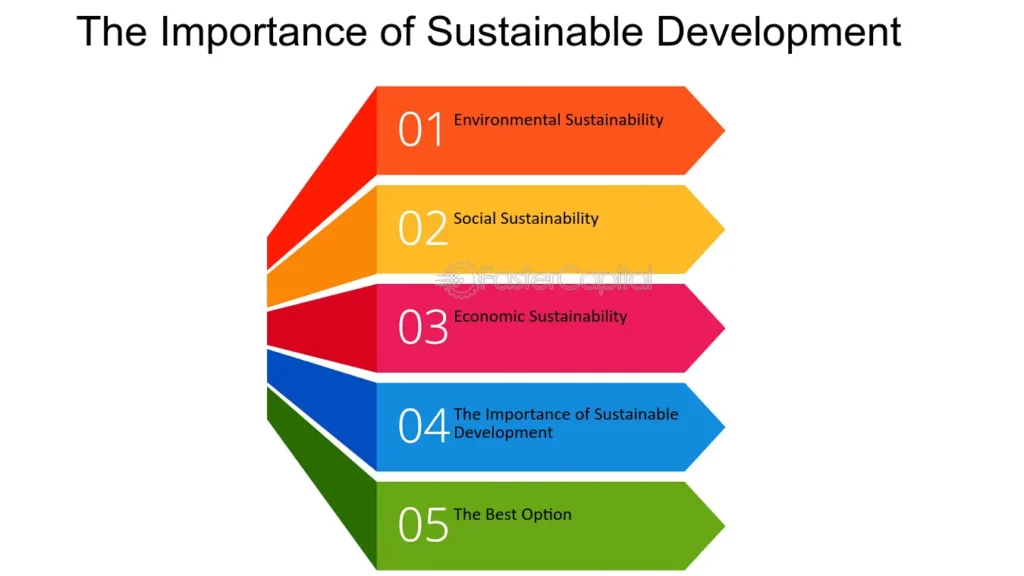What Is Responsible for the Present Degradation of Individual Development? 7 Key Factors to Understand
In today’s fast-paced, ever-evolving world, it is becoming increasingly apparent that individual development is facing significant challenges. People are finding it harder than ever to focus on personal growth and self-actualization. The question, what is responsible for the present degradation of individual development, has gained traction as more individuals begin to realize how modern society impacts their ability to thrive and reach their full potential.
The degradation of individual development isn’t merely about a lack of opportunities or resources. It is a complex issue shaped by various social, economic, psychological, and technological factors that work together to hinder growth. Today, more people are noticing that their potential is being limited by forces beyond their control. In this blog post, we will explore seven key factors that contribute to this degradation, offering a comprehensive understanding of why it is happening and how we can reverse it.
1. What Is Responsible for the Present Degradation of Individual Development? The Impact of Social Media and Technology Addiction
One of the most prominent factors responsible for the degradation of individual development is the pervasive influence of technology and social media. Over the past decade, social media platforms such as Facebook, Instagram, Twitter, and TikTok have become integral parts of daily life. While these platforms offer significant benefits, they also come with a multitude of drawbacks that hinder personal growth.
Many individuals spend a significant portion of their day scrolling through social media, often getting caught in a cycle of mindless consumption. Research suggests that excessive time spent on social media can lead to negative consequences such as decreased attention span, reduced face-to-face interactions, and poor mental health. Social media’s addictive nature creates a constant need for validation and instant gratification, which erodes one’s ability to engage in deep, reflective thought and genuine personal growth.
The habit of constantly comparing oneself to others on social media also fosters a culture of insecurity and self-doubt. The curated, idealized versions of life presented by others can lead individuals to feel inadequate, fueling anxiety and depression. In turn, these negative emotions can prevent individuals from pursuing personal goals and reaching their potential, further contributing to the degradation of individual development.
2. What Is Responsible for the Present Degradation of Individual Development? The Decline of Mental Health Awareness and Support
Another significant factor in the degradation of individual development is the widespread lack of proper mental health support and awareness. Mental health issues such as anxiety, depression, and stress are on the rise, yet many individuals still struggle to access the care they need. In many cultures, mental health continues to be stigmatized, leading people to suffer in silence rather than seek help.
Mental health is deeply interconnected with personal growth. A person who is mentally unwell finds it difficult to focus on self-improvement or pursue their dreams. When mental health challenges go untreated, they can negatively impact nearly every aspect of an individual’s life, from relationships to career development. Without adequate mental health resources, individuals are left to navigate these challenges alone, which only perpetuates the cycle of stagnation.
The lack of accessible and affordable mental health services is a significant barrier to personal development. Furthermore, the societal emphasis on “toughening up” or “pulling yourself up by your bootstraps” often prevents individuals from acknowledging and addressing their mental health struggles. As a result, many people remain trapped in unhealthy mental states, unable to move forward and grow.

3. What Is Responsible for the Present Degradation of Individual Development? Increased Pressure and Unrealistic Expectations
Modern society places immense pressure on individuals to succeed in all areas of life, from career achievements to social status. The rise of social media has only amplified this pressure, with many individuals striving to achieve unrealistic standards set by influencers, celebrities, and peers. Whether it’s the pressure to earn more money, get the perfect body, or live an idealized lifestyle, the constant striving for perfection often leads to feelings of inadequacy and burnout.
When people are constantly comparing themselves to others and trying to live up to external expectations, they often lose sight of their own aspirations and personal values. The drive for success, which is often defined by material wealth or superficial achievements, can lead individuals to overlook what truly matters to them. In turn, this creates a disconnection from their authentic selves and prevents them from engaging in the personal development that fosters fulfillment and well-being.
The overwhelming pressure to be “perfect” also increases stress levels, leading to mental and physical exhaustion. This fatigue makes it even more difficult for individuals to engage in activities that contribute to their growth and personal success. Rather than pursuing development at their own pace, they find themselves chasing after unattainable standards, which ultimately contributes to the degradation of individual development.
4. What Is Responsible for the Present Degradation of Individual Development? Economic Inequality and Limited Access to Resources
Economic inequality is another powerful force driving the degradation of individual development. In many parts of the world, access to education, quality healthcare, career opportunities, and personal growth resources is determined largely by one’s economic status. Those from wealthier backgrounds often have a significant advantage in terms of opportunities, while individuals from lower-income backgrounds may struggle to access the resources they need to develop personally and professionally.
The rising costs of education, lack of affordable healthcare, and limited job opportunities in many regions leave many individuals without the tools they need to thrive. For example, students from low-income families may not be able to afford the costs of higher education or extracurricular activities that provide personal and professional development. This disparity in access to resources creates a significant barrier to individual growth, as people from disadvantaged backgrounds find it much more difficult to reach their potential.
Economic inequality also exacerbates feelings of hopelessness, making it harder for individuals to set and achieve meaningful goals. When survival is the primary concern, long-term personal development often takes a backseat. This lack of access to resources perpetuates the cycle of stagnation, preventing individuals from developing the skills and abilities that would enable them to overcome obstacles and lead fulfilling lives.
5. What Is Responsible for the Present Degradation of Individual Development? Diminished Focus on Education and Self-Learning
While formal education has traditionally been seen as a critical pathway to personal development, the modern education system is increasingly ill-suited to the needs of today’s world. Many education systems prioritize standardized testing and rote memorization, which stifle creativity, critical thinking, and problem-solving skills. As a result, students may leave school without a true understanding of how to engage in lifelong learning or self-directed development.
The focus on grades and test scores rather than personal growth leaves little room for students to explore their passions or develop a sense of self-worth that is not tied to external validation. Additionally, the increasing cost of education means that many individuals are unable to pursue higher education or specialized training that could help them improve their skills and knowledge.
As the pace of technological change continues to accelerate, the ability to learn new skills and adapt is more important than ever. Unfortunately, many education systems do not place enough emphasis on teaching individuals how to engage in self-directed learning or develop the resilience needed to thrive in a constantly changing world. The lack of this foundational skill contributes significantly to the degradation of individual development.
6. What Is Responsible for the Present Degradation of Individual Development? The Erosion of Family and Social Structures
Family and social structures play a crucial role in supporting individual development, particularly in the formative years of life. However, in many societies today, traditional family units are breaking down, and social isolation is becoming more common. The erosion of these structures can leave individuals without the necessary support system to help them navigate the challenges of life and achieve personal growth.
Family provides emotional stability, guidance, and encouragement, which are essential for personal development. Similarly, strong social networks—whether among friends, colleagues, or community groups—offer opportunities for learning, mentorship, and collaboration. When these structures break down, individuals are left to navigate life’s challenges alone, which can impede their growth and contribute to feelings of loneliness and disconnection.
In many cases, the breakdown of family and social structures has led to an increase in mental health issues, including depression, anxiety, and social withdrawal. The lack of strong support networks makes it more difficult for individuals to overcome obstacles, stay motivated, and pursue personal growth. As a result, the erosion of these structures is a significant factor in the degradation of individual development.
7. What Is Responsible for the Present Degradation of Individual Development? Globalization and the Loss of Identity
Globalization has brought many benefits, such as increased access to information, new markets, and cultural exchange. However, it has also led to a sense of cultural homogenization, where traditional values and identities are increasingly being replaced by global norms. This loss of cultural identity can have profound effects on individual development, particularly for those who feel disconnected from their heritage or struggle to reconcile global influences with personal beliefs.
As societies become more interconnected, individuals are often pressured to conform to global standards, whether in terms of career expectations, social behaviors, or lifestyle choices. For some, this loss of a clear, personal sense of identity leads to confusion and a lack of direction. When individuals are unsure of who they are or what they stand for, it becomes much harder to develop a strong sense of self and pursue meaningful growth.
Moreover, the constant exposure to different cultures and perspectives can create feelings of inadequacy as individuals try to adapt to new norms and expectations. The loss of identity can lead to a lack of confidence and purpose, further contributing to the degradation of individual development.
Conclusion: What Is Responsible for the Present Degradation of Individual Development and How Can We Address It?
The degradation of individual development is a complex issue with many contributing factors. From the pervasive influence of social media and technology to the erosion of family structures, economic inequality, and the decline of educational systems, many societal forces are working against personal growth. However, these challenges are not insurmountable.
To address these issues, society must prioritize mental health, invest in equitable education, provide access to resources for personal development, and foster environments that encourage self-reflection and emotional well-being. By creating a culture of support, continuous learning, and individual empowerment, we can begin to reverse the degradation of personal development and allow individuals to reach their fullest potential.
Ultimately, we all play a role in creating the conditions necessary for individual growth. By making conscious efforts to improve our own lives, support others, and advocate for systemic changes, we can contribute to building a society where personal development is no longer hindered by external pressures or limitations. The journey toward individual fulfillment is not always easy, but with the right tools and mindset, it is possible for every person to thrive and reach their fullest potential.
